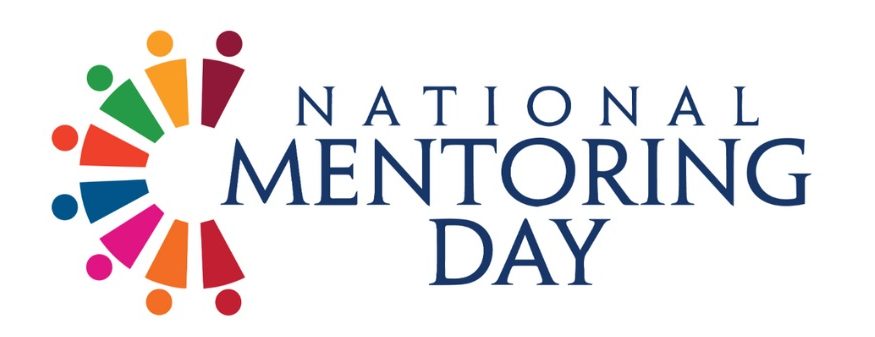Mentoring at Cardiff University
15 October 2024
27 October 2024 (and every year!)
Why Mentoring?
People often overthink mentoring, but in its most basic definition mentoring is simply a supportive relationship between one person and another, more experienced, person. However, it can still be an incredible powerful tool for adding clarity and purpose to your decision making, helping you to move forward in a particular area of either your research or your career, and ultimately allowing you to reach your full potential. Mentoring can support you with many aspects of your research career, such as writing grant applications, developing leadership, getting started in teaching, or exploring public engagement. Read on to find out more!
6 Myths about Mentoring
Mentoring is sometimes seen as a chore rather than a positive, supportive endeavour. Another burdensome thing that you “have to do” as an academic. However, this perception is often a result of misinformation and anecdotal hearsay. Here are 6 common misconceptions about mentoring that we hope to debunk!
1) You must use a formal mentoring scheme
Formal mentoring schemes are very useful if you’re not sure how to go about finding a mentor, particularly if the pool of mentors available via the scheme is broader than you would ordinarily have exposure to through your own networks. However, you can also arrange your own mentor, and at any time that suits you. You don’t need to wait for formal schemes to open, nor do you have to ask for anyone’s permission to seek out a mentor! Some mentoring relationships will just develop organically via existing support networks without either the mentee or mentor proactively seeking each other out or ever formalising the relationship. You may be being mentored right now without even realising it!
2) You only need a mentor when you are career planning

Mentoring is commonly associated with career planning, and rightly so as it can be a powerful tool that can provide you with the clarity and self-awareness needed when deciding what you want to do. However, mentoring can also be invaluable for learning new skills, acquiring new knowledge, and generally building confidence. You can find a mentor for any reason, depending on your developmental needs at the time. This could be learning a new lab technique, writing a fellowship proposal for the first time, taking on a leadership role, starting out in public engagement…the list goes on! All you need to do is to be clear to yourself and to your mentor about the purpose of the mentoring relationship so that you can both get the best out of it.
3) You can only have one mentor at a time
There are no rules about how many mentors you can have or even how many is ideal, you can have as many as you like. It’s very much dependent on your developmental needs at any given time…the more needs you have, the more mentors you should get! Having mentors with different backgrounds, skills, knowledge, and experiences will provide you a much broader perspective.

4) Your mentor should be someone senior in your department
Your mentor can be anyone. They don’t need to be from your department or your School, or even from the Higher Education (HE) sector! Indeed, some would argue that it’s better that they aren’t so that they can provide you with impartial support. Use your networks (including social media, such as LinkedIn and Twitter/X) to cast your net wide. Nor do they need to be senior to you. Evidence out there suggests that peer mentoring can be just as effective.
5) Once you establish a mentoring relationship you have to see it through to the end
For mentoring to be effective, the relationship between you and your mentor needs to work. Sometimes, particularly if matched through a formal mentoring scheme, you may feel that you and your mentor are not quite bonding in the way that you want. This is absolutely fine; it would be unrealistic to expect every mentoring relationship to be a perfect match. If you are in this situation then just be polite and courteous and draw the agreement to a close, rather than wait for it to painfully fizzle out. Similarly, effective mentoring relationships will come to an end at some point. Be clear when establishing the mentoring agreement about your expectations regarding the duration of the mentoring and what will happen once you’ve achieved your goals. And allow your mentor to do the same!

6) Mentors have all the answers
A mentor is not there to give you all the answers. Rather, a mentor is offering their time and their experience in order to help you realise the answers you seek on your own and to draw your own conclusions. When you meet with your mentor, it is you that should be doing most of the talking! Mentoring will not provide instant results; it is a process that you have to work through. Mentoring will give you the time and space that you need to reflect on your current situation and on what future pathways are out there for you. Take advantage of that…it’s not something you want to rush!
Mentoring at Cardiff University
The call for the Academic Staff Mentoring Programme for Teaching & Research, Teaching & Scholarship and Research staff at Cardiff University will open in November and the scheme will be seeking expressions of interest for both mentors and mentees.
The programme is designed to connect research and academic colleagues with each other to create mentoring partnerships. It will help you to shape your own experience – carefully matching together a suitable team of mentor and mentee, both working together to determine a direction of travel to reach an agreed destination. Whether as a mentor or mentee, you can contribute and benefit from the success of the programme.
To register either as a mentor or a mentee, all you need to do is complete a short form which will be made available on the academic staff mentoring programme intranet page. For more information about the scheme, please visit Academic Staff Mentoring Programme or contact Mentoring@cardiff.ac.uk.
Further Reading
If this piece on mentoring has inspired you, or at least piqued your interest, and you want to find out more, please see the attached mentoring toolkit and feel free to follow the few links we’ve curated for you below. But don’t stop there…there’s a wealth of further information out there on the internet about mentoring for you to explore!
Mentoring Toolkit – Cardiff University
Mentoring and Coaching for Researchers – Vitae
Approaches to coaching and mentoring – Vitae
What is Mentoring? / Mentoring Resources – University of Edinburgh’s Institute for academic Development
People-Matched Mentoring by Kay Guccione and Charlotte Bonner-Evans (courtesy of the Future Leaders Fellows Development Network)
People-matched Mentoring – A Success Story by Professor Claire Gorrara and Dr Sarah Inskip (courtesy of the Future Leaders Fellows Development Network)
Interdisciplinary Mentoring by Charlotte Bonner-Evans (Mentoring and Community Manager for the Future Leaders Fellows Development Network, based at Cardiff University)
Interdisciplinary Mentoring: Collaboration and Sharing Best Practice by Clare Barrie (Communications Officer, Future Leaders Fellows Development Network
Structuring a mentoring agreement process, Ideas, Concerns and Expectations – by Kay Guccione (courtesy of the Future Leaders Fellows Development Network)
Developing Future Leaders: A Mentor-Mentee Discussion – In conversation with Professor Bernie Morley and Professor Nathan Mayne (courtesy of the Future Leaders Fellows Development Network)
The Power of Alumni Mentoring by Cardiff Connect Alumni Team (we will be exploring a similar scheme for R-only staff in the near future!)
- From Ignite to PlaceNET: Creating Spaces for Collaboration
- Navigating Research Careers with the Vitae Researcher Development Framework 2025
- Welsh Crucible and me – Dr Hayley Reed (2024)
- The Researcher Community Showcase: Co-creating research with user communities and interdisciplinary colleagues – Dr Rachel Hale
- The Researcher Community Showcase: From the Third Sector to Academia: My career journey as a participatory researcher – Dr Hayley Trowbridge